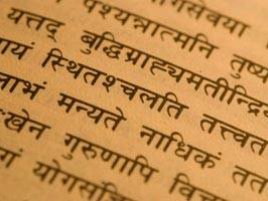Source:
RUSSIA: "I've never
encountered the practice of destroying religious literature before"
By Felix Corley, Forum 18
21 March 2012
Tomsk appeal victory for Hare
Krishna community
Human rights defenders and
Russia's Hare Krishna community have welcomed the 21 March decision by Tomsk
Regional Court to reject prosecutors' appeal against the lower court decision
to have the third Russian edition of The Bhagavad-gita As It Is declared
extremist. The work – a translation of and commentary on the ancient Sanskrit
text by Swami Prabhupada, founder of the International Society for Krishna
Consciousness – is a fundamental text for the Hare Krishna community. They
feared that if the work was declared "extremist", bans on their
communities might follow.
In December 2011, amid
widespread Indian outrage, Russia's Ambassador to India Aleksandr Kadakin
described those seeking to ban the work as "madmen". On 28 December
2011, Tomsk's Lenin District Court rejected the prosecutor's suit.
The prosecutors' appeal
against the December 2011 ruling was heard on 20 and 21 March by a panel of
three judges led by Larisa Shkolyar at Tomsk Regional Court. Yelena Selezneva
from the Regional Prosecutor's Office insisted to the court that all the
"expert analyses" from Kemerovo and Tomsk "without exception"
consider that the book contains extremist statements, local observer Nikolai
Karpitsky, who attended the hearing, noted.
Marina Osipova of the Tomsk
City Prosecutor's Office insisted to the Court that not the Bhagavad-gita per
se but Swami Prabhupada's comments were under question. Karpitsky dismissed
such claims – previously made by Russia's Foreign Ministry and General
Prosecutor's Office – as "an attempt to misinform those present".
The ruling rejecting the
prosecutors' appeal was met by applause in the court, Russia's Hare Krishna
community declared. "I believe the decision is just and sensible,"
their lawyer Aleksandr Shakhov noted after the hearing. "I applaud both
the Tomsk District and Regional Courts."
Will Tomsk prosecutors appeal?
Officials of Tomsk City
Prosecutor's Office refused to put Forum 18 through on 21 March to its head,
Viktor Fedotov, to Osipova who had led the case in both hearings, or anyone
else.
Tomsk Regional Prosecutor's
Office will decide whether to appeal against the latest decision only once the
Regional Court has issued its full decision in writing, spokesperson Svetlana
Krimskaya told Forum 18 from the Prosecutor's Office after the court hearing
had concluded.
Krimskaya declined to comment
on how the FSB – which did the preparatory work for the suit to be lodged –
will react and whether it will instruct prosecutors on any next move. She also
declined to comment on Ambassador Kadakin's characterisation of those seeking
to ban The Bhagavad-gita As It Is as "madmen". "We work
exclusively within the terms of the law," she insisted to Forum 18.
The telephone went unanswered
at the Tomsk Regional FSB's press office. Forum 18 was thus unable to ask why
it had intervened in the way local newspaper Tomskaya Nedelya had covered the
case.
On 16 March, the paper ran an
article by local journalist Zinaida Kunitsyna entitled "How did Tomsk
become the centre of a worldwide scandal?", criticising the case to ban
the book. The same issue of the paper also ran an anonymous commentary
defending the case which was billed as "the Viewpoint of the Law
Enforcement Agencies".
Tomskaya Nedelya's editor,
Nikolai Grigoryev, told Forum 18 on 20 March that before the issue was
published, Rustam Kamarov of the FSB press office had telephoned and visited
his office to warn the paper not to run Kunitsyna's article. In discussion,
Grigoryev insisted that they would run the article, but agreed to publish the
view of the FSB alongside. "We did what we thought was reasonable,"
Grigoryev told Forum 18. "We ran one article in favour of the case and one
against. They can't now complain as their viewpoint was heard."



